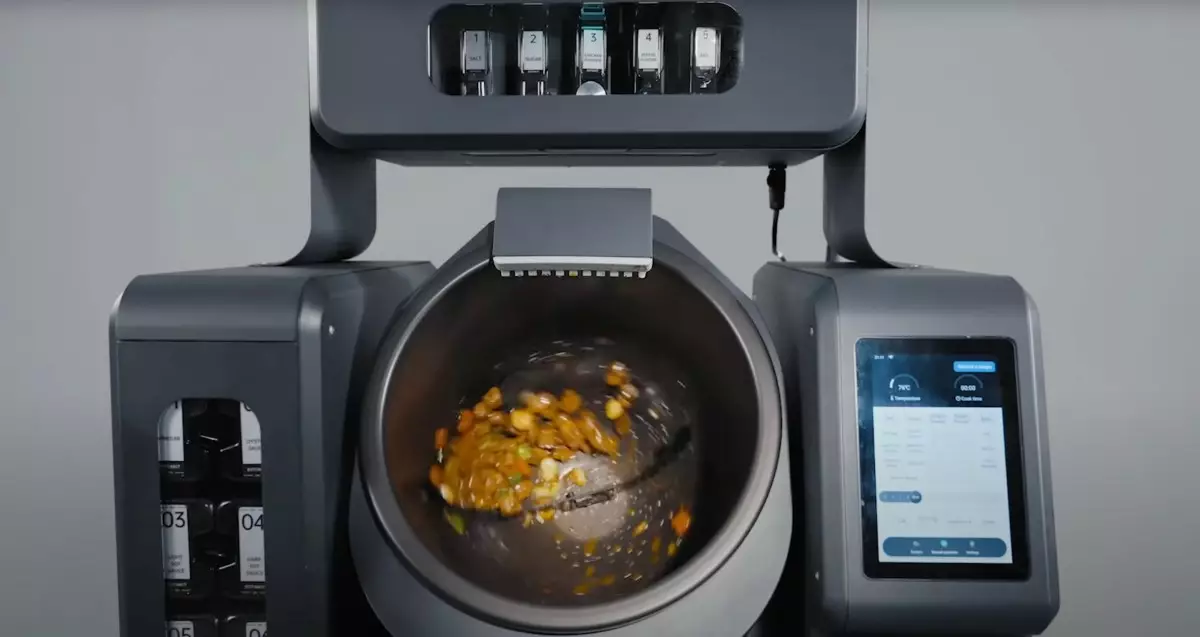The impact of the COVID-19 pandemic on the restaurant industry has been profound, with staffing shortages becoming a persistent issue that many businesses struggle to overcome. As traditional labor sources dwindle, the urgency for innovative solutions has surged. Owners and managers are in search of ways to optimize operations while maintaining quality, creating a fertile ground for automated technologies to emerge as viable alternatives.
In response to the labor crisis, startups are racing to develop automated solutions tailored for commercial kitchens. With the rise of automation, systems that can execute cooking tasks with minimal human intervention have become increasingly relevant. Among the leading innovators is Miso, touted for its eye-catching robotic arm capable of flipping burgers with ease. In contrast, Botinkit brings a more understated yet functional approach with its product, the Omni. Unlike Miso’s flamboyant design, Omni presents itself as a sleek, self-service kiosk, resembling traditional kitchen appliances and integrating a user-friendly touchscreen interface. This aesthetic allows it to blend into a kitchen without the futuristic overtones associated with robotics.
The Omni ready-made kitchen solution can manage various cooking tasks—including stir-frying and stewing—entirely in a wok environment. Competent in performing culinary functions that traditionally require a skilled chef, the Omni system allows restaurants to function with half the usual labor force. Automation in this capacity addresses many vulnerabilities in consistency and operational efficiency, as human error can lead to varied food quality. According to CEO Shirley Chen, the aim is to radically transform the kitchen dynamics in the coming decade: “By automating the most challenging roles within the kitchen, we can ensure consistency and reliability,” she explains.
Botinkit’s inception in 2021, led by Chen’s dual expertise as a strategist and restaurant owner, has made her acutely aware of the operational hurdles within the industry. This unique perspective has attracted attention and financial backing, culminating in a $21 million Series A funding round as of July 2023. The backing from investors underscores a growing recognition of automation as not just a stopgap but a long-term solution for the sector. With capital secured, Botinkit is poised to expand its footprint beyond Asia into European and U.S. markets, indicating that the demand for efficient kitchen solutions is not confined to one geographical region.
The integration of automation into restaurants offers a glimpse into a future where culinary experiences are both enhanced by technology and freed from traditional human constraints. As companies like Botinkit continue to innovate, the restaurant landscape will likely evolve significantly, balancing the need for human interactions in dining while also embracing the efficiency that robotic technologies can provide. The journey ahead promises not only changes in how meals are prepared and served but also a reimagining of what restaurant work and dining experiences can be.

